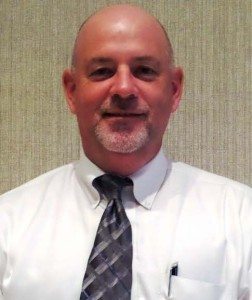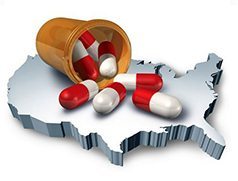Wilmington, DE – Eight police agencies throughout the state of Delaware have implemented permanent prescription drop boxes to take action against the prescription opioid epidemic. This comes after Governor Jack Markell just signed House Bill 59 into law, an initiative that removes lower level felony drug possession from the list of violent felonies in the state – one Attorney General Matt Denn told WMDT News “every dollar we’re not spending on incarcerating that person is a dollar we can spend trying to treat them for their addiction”. In 2014, Delaware saw 185 overdose deaths (about one every other day), ranging in ages of 15 years old to 87. The average demographic who died of an overdose was a 42 year old white male. The overdoses consisted of heroin, cocaine, often mixed with alcohol or some other substance. One Oxycodone pill costs $20-$30 in the state, whereas a bag of heroin costs $5. Police seizures almost tripled from 2012-2013. Admissions for public treatment have more than doubled. 9,897 adults sought public treatment for addiction in 2014 in Delaware. 3 out of 10 listed heroin as their primary drug at the time of admission. DOC Commissioner Robert Coupe says 60% of those incarcerated are impacted by addiction. The number of heroin incidents reported by police has increased 96% since 2008. The Department of Health and Social Services Secretary Rita Landgraf calls what Delaware is facing an addiction epidemic. “We see the toll this disease is taking every day,” says Jill Fredel, Director of Communications for the Delaware Department of Health and Social Services. “Lives lost to overdose, people of all ages struggling in active addiction, families thrown into a living Hell, property crimes committed to support individuals’ addiction, not enough treatment capacity either in public or private settings available for those in need.” Fredel says Governor Markell and Secretary Landgraf are committed to working on 3 fronts across state government:
- Prevention and Education
- Criminal Justice
- Treatment and Recovery
In the state’s budget for 2016, which has to be balanced and approved by the Legislature and signed by the Governor by June 30, Governor Markell asked for $4.45 million in new dollars to expand treatment and recovery capacity. Those were the only new dollars in his budget that he asked for. We should know by the end of this month whether or not the funding is approved. One of the responsibilities Dr. Marc Richman, Assistant Director for Community Mental Health and Addiction Services, has is to help coordinate the state’s substance use redesign work with the cabinet secretaries and Governor’s office. “We have an addiction epidemic in Delaware,” says Dr. Richman. “What is getting most attention in the media is the opiate and heroin problem, which is getting most of the press around the country.” Dr. Richman says the state still has problems with alcohol use and other substances, but clearly the opiate and heroin is getting the most attention. He says alcohol has been around a long time and it’s still a problem. The department tracks overdoses on a monthly basis, and frequently alcohol is involved with other drugs. The heroin problem in Delaware developed much like it has in other states – it began with a prescription opioid addiction that turned into the cheaper and more accessible heroin. “We’ve worked very closely with law enforcement,” says Dr. Richman. “They have done a fantastic job on cracking down on the dissemination of opiates. The price of getting a prescription pill of vicodin or oxycontin has gone way up. It’s a simple supply and demand issue.” Unfortunately, Dr. Richman says the potency of heroin on the streets of Delaware is very high. What used to be more prevalent in the 1980s is a different game now. Heroin has an approximate 90% purity. The state has also seen the batches of Fentanyl-laced heroin in the state that have killed dozens of people throughout the U.S. Dr. Richman says the rashes of deaths have been cyclical. “We have a rash of deaths and then it’s gone and then it comes back,” says Dr. Richman. “We are really fortunate in our state from the Governor to the Legislators to people in the public system recognizing and getting that it is a medical problem.” Dr. Richman says the Department hasn’t seen the pushback most states have when it comes to criminalizing vs. seeing addiction as a medical problem. In 2014 Governor Markel signed a Good Samaritan bill, allowing more distribution of the drug Naloxone (a heroin overdose antidote). He says the state recognizes that this is a community problem. Finding the money in this very difficult and challenging economic environment, however, is another issue. “We are looking at increasing the residential treatment slots across the state on the public behavioral health side,” says Dr. Richman. “We are analyzing our withdrawal management programs.” The state used to have one withdrawal management program, and now their desire is to open up a second one if this funding is approved. They hope to double the number of sober living programs to go from 60-120 slots. Their intention is also to add a second residential young adult opiate treatment program. “We hope to get the funding and we hope these programs continue,” says Dr. Richman. “It depends on how the funding works out with the state.” Delaware sees somewhere between 15-16 deadly overdoses every month, which has steadily been rising, often with multiple substances involved. Alcohol seems to make everything worse and increase the chances of an overdose. The state’s needle exchange programs in the city of Wilmington have been very successful in reducing communicable disease. Clearly, if less people are sharing needles, there’s going to be a reduction in HIV and Hepatitis C transmission. “Our philosophy is the earlier the intervention the better,” says Dr. Richman says of the new law. “If we’re able to treat people in the community as opposed to a correctional facility, we have a better chance for success for that individual and the community. We have an emphasis here in prevention. We’re using as many funds as we can to prevent the problems in the first place. For those that are young, you obviously want to get in there and intervene as fast as you can.” Police in Gloucester, Massachusetts, who recently decided to take offenders straight into treatment versus arresting them, has seen 5 people in the last 5 days walk into the department and are now in long-term treatment. Dr. Richman says that’s a wonderful idea, the only downside is that you have to have enough treatment beds. If a state doesn’t have the treatment accommodations needed, that’s a problem. “Sixty percent of people in correctional facilities have substance use and/or mental health problems,” says Dr. Richman. “It’s no surprise that we’re not providing enough treatment for those who need it. If you can prevent the arrest and get them treatment, that’s great. But nowhere I know, and I’m sure Massachusetts would fall into this category, has enough treatment from outpatient to residential.” Delaware is unfortunately starting to see instances of Krokodil (a codeine derivative usually home-manufactured and mixed with a number of other substances) in the southern part of the state. It’s a concern for the state, as is an increase in methamphetamine, evident by the number of home lab seizures. The state has put a lot of effort in their website, Help is Here, developed to be a user-friendly resource for those looking for more information about where to get help. The site launched in October and has seen over 42,000 page views. Vertava Health is also committed to helping Delaware in any way we can to get people the help they need. You can call us 24/7 at 844-470-0410.  Marc Richman, Ph.D. is the Assistant Director of Community Mental Health and Addiction Services for the Division of Substance Use and Mental Health for the State of Delaware (DSAMH). As part of his responsibilities at DSAMH, he has been the Director of TASC (Treatment Access Center) for the past three years responsible for the statewide unit and its operations. Most recently, he has been working with Secretary Landgraf, Governor and First Lady Markel, Legislators and key stakeholders in the public behavioral system Substance Use Disorder redesign. Dr. Richman is also a licensed psychologist with 25 years of providing treatment to children, adolescents and adults. Prior to joining DSAMH, Dr. Richman worked for the Children’s Department and the Division of Child Mental Health Services (DCMHS) for 17 years. His last position at DCMHS was the Deputy Director for the Division.
Marc Richman, Ph.D. is the Assistant Director of Community Mental Health and Addiction Services for the Division of Substance Use and Mental Health for the State of Delaware (DSAMH). As part of his responsibilities at DSAMH, he has been the Director of TASC (Treatment Access Center) for the past three years responsible for the statewide unit and its operations. Most recently, he has been working with Secretary Landgraf, Governor and First Lady Markel, Legislators and key stakeholders in the public behavioral system Substance Use Disorder redesign. Dr. Richman is also a licensed psychologist with 25 years of providing treatment to children, adolescents and adults. Prior to joining DSAMH, Dr. Richman worked for the Children’s Department and the Division of Child Mental Health Services (DCMHS) for 17 years. His last position at DCMHS was the Deputy Director for the Division.


